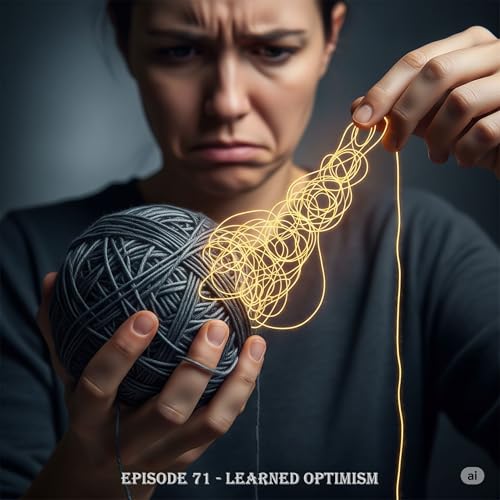
Episode 71 – Learned Optimism: Seligman's Revolution in Positive Psychology
No se pudo agregar al carrito
Add to Cart failed.
Error al Agregar a Lista de Deseos.
Error al eliminar de la lista de deseos.
Error al añadir a tu biblioteca
Error al seguir el podcast
Error al dejar de seguir el podcast
-
Narrado por:
-
De:
This episode presents a blueprint of the self by exploring the fundamental tension between external environmental forces and our complex internal architecture. It begins with B.F. Skinner's radical behaviorist view that our actions are primarily shaped by environmental "contingencies of reinforcement"—the consequences that follow our behaviors. From this perspective, the idea of a free, "autonomous man" is an illusion, and concepts like willpower are less relevant than the design of the environment itself. This externalist view suggests that to change behavior, we must change the environmental cues and consequences that drive it.
In contrast to this external focus, the discussion then delves into our intricate internal systems. Transactional Analysis offers a model of our "ego states"—the Parent, Adult, and Child—which helps explain our internal conflicts and how we communicate. Attachment theory provides another layer, showing how our earliest relational experiences wire our nervous systems with default patterns for seeking connection or maintaining distance. These internal frameworks are not always conscious but profoundly influence our automatic reactions in social situations.
These deep internal and external forces ultimately shape our conscious experience, particularly our self-talk and habits. The episode introduces Martin Seligman's concept of explanatory styles, which are the habitual ways we explain bad events to ourselves—either optimistically or pessimistically. This internal narrative, which can be learned and changed, powerfully predicts our resilience and motivation. Understanding this entire blueprint—from external contingencies to internal states and self-talk—is the key to moving beyond simply reacting and beginning to consciously design our own behavior and identity.


